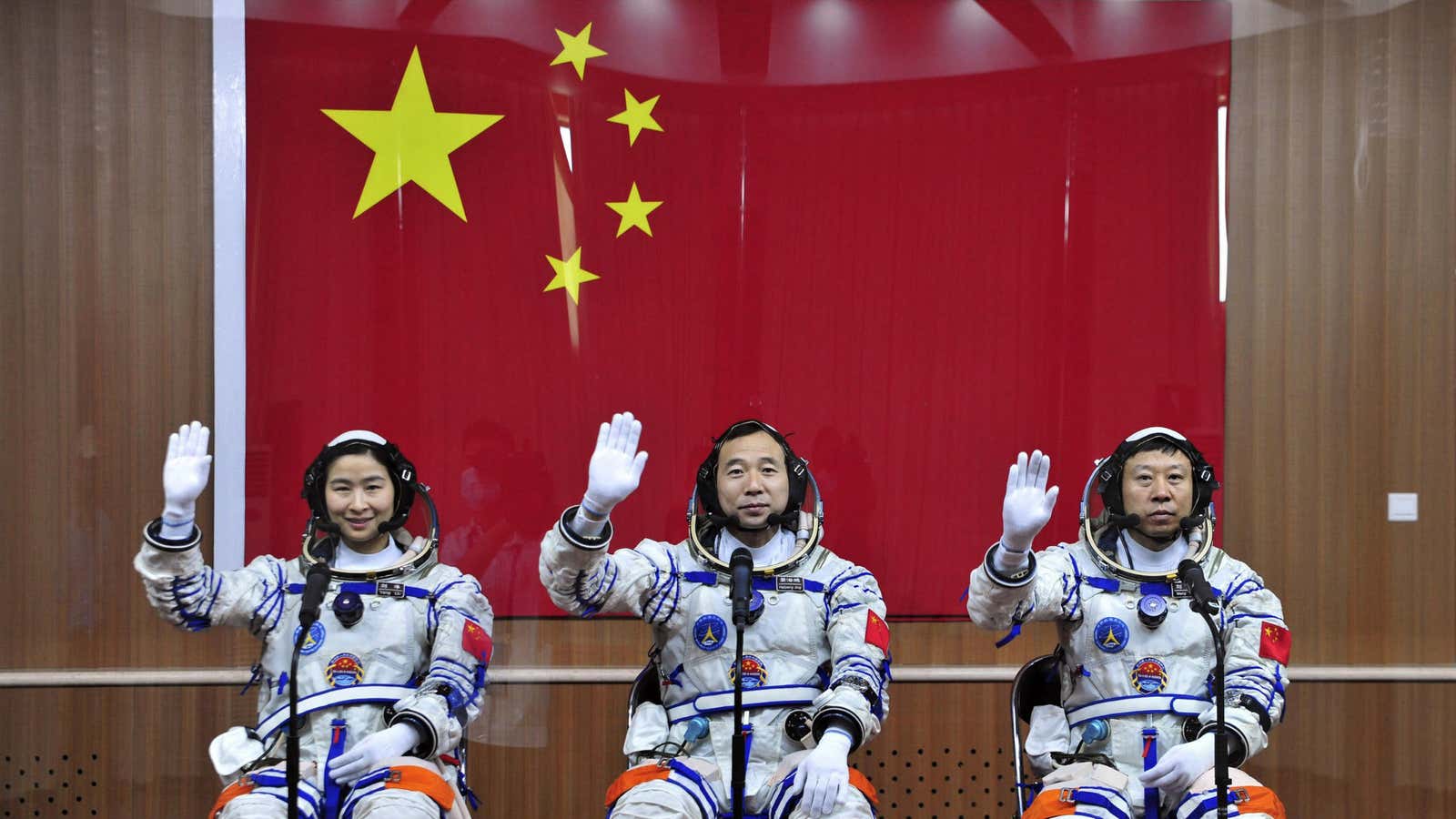China announced today that the Shenzhou 10, its fifth manned space flight since it put Yang Liwei into space in 2003, will carry three astronauts to its Tiangong 1 space lab later this month. Independent observers put the launch date as early as next week. China’s most recent mission, last year, carried its first female astronaut, Liu Yang, and was the first to dock with the lab.
China’s space program is catching up those of America’s and Russia’s. This months’ mission will carry its heaviest payload yet and will be the final one to dock with the Tiangong 1 before the lab is decommissioned in favour of a newer one.
Still, some western observers dismiss China’s space capabilities as too puny to worry about. But China is now one of only two countries in the world capable of independently sending humans into space. America lost that ability when it closed the space shuttle program in 2011. Its astronauts now hitch rides on Russian spacecraft.
Nor is Russia quite as independent as it seems. Its sole launch facility is the Baikonur cosmodrome in Kazakhstan. Though the chances of the two countries falling out are infinitesimally small, Russia wants to reduce its reliance on the foreign base, where its lease runs out in 2050. It is building a new complex on Russian soil.
The Chinese National Space Administration hopes to put a second lab into space this year and to have a permanent space station in orbit by 2020. That is the same year that the International Space Station, which is larger but which American insistence has kept China out of, will find its way to the bottom of the ocean. And China’s space budget is growing while America’s is shrinking.
China therefore has plenty of reasons to feel chuffed. But today’s space race bears little resemblance to the one in the geopolitics-obsessed 20th century.
It is true that America—the state—is no longer capable of putting people into space. But Americans—the people—are racing to be able to do what is presently the preserve of sovereign nations. Three companies—Boeing, Elon Musk’s SpaceX, and Sierra Nevada Corporation—hope to carry astronauts to the International Space Station before the end of its life. SpaceX is already ferrying payloads back and forth.
And that’s just the big boys. Lots of other private companies enter each year to win prizes designed to spur innovation in manned space flight and moon landings. All of these are privately run and at little cost to tax-payers. More importantly, they spur competition, which was crucial to the last century’s space race.
So China may look like it’s on the way to winning the space race. But increasingly, China’s race is one that hardly anyone else is taking part in.
